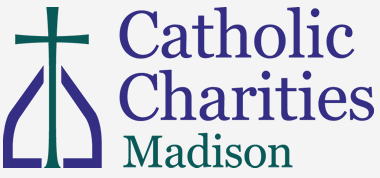 The Freedom From Religion Foundation is deeply concerned about a Catholic organization possibly being given charge of a public center for the homeless in Wisconsin’s capital.
The Freedom From Religion Foundation is deeply concerned about a Catholic organization possibly being given charge of a public center for the homeless in Wisconsin’s capital.
Dane County is planning to contract with Catholic Charities Madison, a religious group, to provide a publicly paid and affiliated resource center for the homeless. The Catholic Charities Inc. Diocese of Madison has an explicitly religious mission, stating in its tax return that it “serves as a visible presence of the Catholic Church of the Diocese of Madison by providing services that effectively address the physical, emotional, and spiritual needs of individuals and families.” (emphasis added) Dane county resources should not be used to help provide “a visible presence of the Catholic Church” and should not be put toward “spiritual needs.”
While it is laudable that Catholic Charities works to address community needs, it has a distinctly Roman Catholic affiliation. The organization was recently described by the Wisconsin State Journal as being the “outreach arm of the church.” Its headquarters is located alongside the Madison Catholic Diocese at Holy Name Heights. Bishop Robert Morlino describes the goals of Catholic Charities on its website in purely religious terms: “Let us go forward then in our shared mission so that good might overcome evil or be drawn out of evil according to God’s Plan, His Providence which alone makes all things new. May the blessings of an always deeper faith, health and safety be with you and yours.” Morlino is a permanent ex-officio member of the Catholic Charities board.
Bishop Morlino notoriously said when ordaining six new priests following the landmark Supreme Court decision in 2015 that legalized gay marriage: “Our response to that fateful announcement is six new warriors against evil.” His efforts to silence dissent and vilify LGBTQ folks are well documented in the local media.
Despite assurances from Catholic Charities that it “serve[s] and employ[s] persons regardless of sexual orientation, religious, ethnic, racial or social background,” FFRF questions how the organization can do so and remain true to church doctrine. It also wonders whether the resource center will be used to proselytize. Such a use of this publicly funded facility will be contrary to the dictates of the Wisconsin and U.S. Constitutions, FFRF asserts.
The homeless include women of childbearing age who are in need of reproductive medical help, as well as the LGBTQ community. Catholic ideology is officially at loggerheads with both reproductive and LGBTQ rights.
Catholic-related entities have refused to subscribe to the rules promulgated under the Affordable Care Act to ensure that women employees have access to contraceptive insurance. The Catholic Church is behind much of the ongoing litigation over the Obama administration’s work to ensure that workers are covered.
“The homeless come in all religious and nonreligious stripes, who, regardless of affiliation, are in desperate need of even-handed and secular facilities without fear of religious coercion or expectation of worship in order to utilize such services,” FFRF Co-President Annie Laurie Gaylor writes to Dane County Executive Joe Parisi. “Those of us taxpayers who are nonreligious, comprising 24 percent of the population, today outnumber rank and file Roman Catholics. Non-Catholic believers — Protestant, Jewish, Muslim, Wiccan, Hindu and others — are equally concerned with our tax dollars being used wisely and equitably to ameliorate conditions for the homeless in our county.”
It is not necessary for county government to partner with a religious organization to fulfill needed community services. This is a case where religion will get most of the credit for charity, while taxpayers will get almost all of the bill. FFRF urges Dane County to instead partner with a secular organization or make arrangements so that the county itself is providing programming at the resource center.
The Freedom From Religion Foundation is a nationwide nonprofit organization headquartered in Madison that represents nearly 24,000 members across the country, including more than 450 members in Dane County itself and approximately 1,300 in Wisconsin.

